Ring-necked Duck (Aythya collaris)
Ordered chronologically (not necessarily by HRBP number)
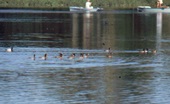
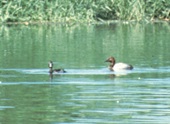
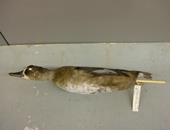 2
2
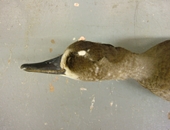
HRBP
0400. Ring-necked Ducks (Aythya collaris), two males and a female
(right), with a Canvasback (left) and Lesser Scaups. Waiakea Pond, Hawai'i
Island, 1 Dec 1977. © Robert J. Shallenberger
HRBP
0399. Ring-necked Duck (Aythya collaris), left, with Canvasback.
Waiakea Pond, Hawai'i Island, 1 Dec 1978. © Robert J. Shallenberger
HRBP
5647. Ring-necked Duck (Aythya collaris). BPBM 179748 collected
on Laysan in 1993, probably fall. Photo © Peter Pyle
HRBP
5648. Ring-necked Duck (Aythya collaris). BPBM 179748 collected
on Laysan in 1993, probably fall. Photo © Peter Pyle
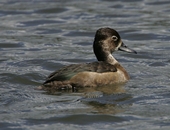 2
2
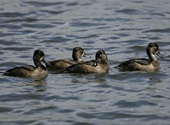 2
2
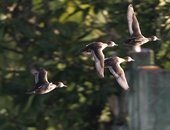 2
2
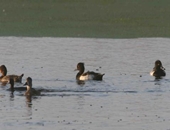
HRBP
5319. Ring-necked Duck (Aythya collaris). Haleiwa, O'ahu, 28
Oct 2006. © Michael Walther
HRBP
5837. Ring-necked Ducks (Aythya collaris). Haleiwa, O'ahu, 28
Oct 2006. © Michael Walther
HRBP
5838. Ring-necked Ducks (Aythya collaris). Haleiwa, O'ahu, 28
Oct 2006. © Michael Walther
HRBP
5503. Ring-necked Ducks (Aythya collaris), left and right, with
Hawaiian Coot and Tufted Duck (center) Kona Sewage Treatment Plant, Hawai'i
Island, 6 Jan 2008. © Reginald David
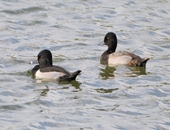 2
2
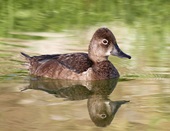 2
2
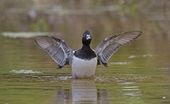 2
2
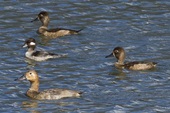
HRBP
5884. Ring-necked Duck (Aythya collaris), left, with Lesser Scaup.
Kawaiele, Kaua'i, 17 Jan 2008. © Jim Denny
HRBP
6010. Ring-necked Duck (Aythya collaris). Sand I, Midway Atoll,
21 Nov 2011. © Dan Maxwell
HRBP
6011. Ring-necked Duck (Aythya collaris). Sand I, Midway Atoll,
16 Feb 2014. © Wieteke Holthuijzen
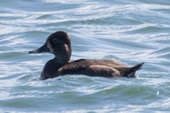 2
2
HRBP
6319. Ring-necked Duck (Aythya collaris). Lana'i Oxidation Ponds,
Lana'i, 2 Nov 2016. © Eric VanderWerf
Photographs
and images contributed to Hawaii Rare Bird Photograph (HRBP) file, B.
P. Bishop Museum, Honolulu and part of The Birds of the Hawaiian Islands:
Occurrence, History, Distribution, and Status by Robert L. Pyle and
Peter Pyle. See Introduction
for more information.